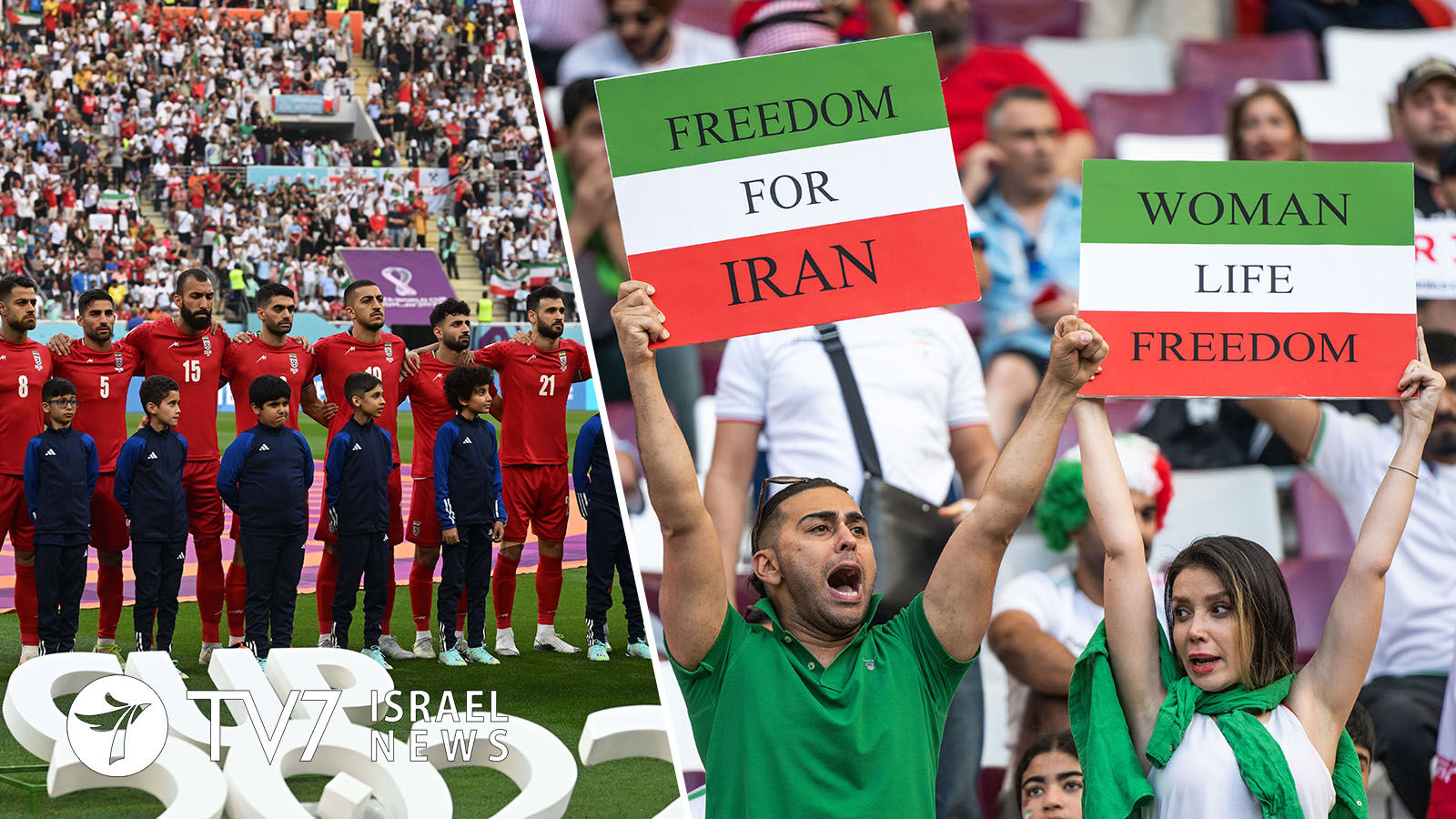Members of the national soccer team of Iran declined to sing their country’s anthem ahead of their opening World Cup match in Qatar before millions of spectators and television viewers around the world.
By Erin Viner
The move is seen as a visible sign of support for mass protests in their homeland after many fans accused the players of siding with a violent state crackdown on the unrest.
The squad remained solemn and silent as the Iranian national song was played before the match with England at Khalifa International Stadium in Doha.
Protests demanding the fall of the ruling Shi’ite Muslim theocracy have raged across Iran since the 16 September death of 22-year-old Mahsa Amini in custody following her arrest by the so-called “morality police” for attire deemed insufficiently Islamic.
Unrest has reportedly spread to 140 cities and towns , as people of all backgrounds have taken to the streets to express outrage over Amini’s death and the suppression of human rights by clerical rulers in the country; manifesting one of the toughest challenges to the Ayatollah Regime since the 1979 Islamic Revolution, with some protesters calling for the deaths of Supreme Leader Ali Khamenei and President Ebrahim Raisi.
The public outrage persists despite an ongoing violent crackdown by authorities and ultimatums issued by the Islamic Revolutionary Guards Corps (IRGC), which has crushed dissent in the past with the support of its volunteer Basij militia.
Human rights groups say that 410 protesters have been killed in clashes with Iranian security forces, with another 17,251 under arrest.
Some Iranian fans attending the World Cup made no secret of their solidarity with the unrest by waving supportive placards, with several carrying the signature slogan “Woman Life Freedom” used by protestors across Iran. One Iranian woman called out, “Freedom for Iran. Stop killing children in the streets!”
Other Iranian fans shouted as the music was heard, with some jeering and making thumbs-down gestures.
Iran’s “Team Melli” has long been a huge source of national pride in Iran.
The athletes found themselves in a precarious position during their high-profile appearance at the World Cup run-up, entangled in politics and anticipation over whether they would use soccer’s showpiece event as a platform to demonstrate solidarity with the protesters from a world stage.
Ahead of the match, none of the team members had expressed support for the demonstrations, but furor erupted on social media when Iranian President Raisi posed with the team, in which one player was seen bowing to the hardline leader.
While the soccer team has in the past served as a symbol of national pride, some Iranians said that they preferred it had withdrawn from the competition being held just across the Gulf from their country.
“All of us are sad because our people are being killed in Iran but all of us are proud of our team because they did not sing the national anthem – because it’s not our national (anthem), it’s only for the regime,” said one Iranian spectator at the World Cup who asked not to be named.
Pejman Zarji, a 38-year-old sports coach who attended the match, said the Iranian team belonged to the people not the government.
“I have mixed feelings. I love football but with all these children, women and men killed in Iran, I think the national team should not play,” said a 24-year-old university student named as Elmira told Reuters during a telephone from Tehran before the match, adding, “It is not Iran’s team, it is the Islamic Republic’s team.”
Also speaking by telephone from the northwestern city of Urmia, high school student Setareh, 17, said, “I know it is their job to play football but with all those children killed in Iran, they should have stood in solidarity with the people.”
“We have a lot of respect to what the Iran team did,” commented German Football Association (DFB) Media Director Steffen Simon.
Even though Iran lost 6-2 to England in Monday’s Group B opener, Iranian fans made a noisy show of support by pounding drums and blowing horns throughout the game.
There has been mixed response to the team’s actions back home.
Several banners of the team were reportedly burned in the capital Tehran; although Sara Masoudi, 32, another Iranian fan in Qatar, played down such actions as having been “very small” that received exaggerated media coverage.
Other Iranians widely shared pictures of children killed in the protests on Twitter, accompanied by messages such as, “They loved football too, but they were killed by the Islamic Republic.”
Iranians throughout the region also weighed in on the match. A female Iranian supporter watching on a giant outdoor screen in Dubai remarked, “we lost badly but I still say kudos to the team.”
The Ayatollah regime has repeatedly accused its foreign enemies, including Israel and the US, of having instigated the unrest. Iranian Foreign Minister Hossein Amirabdollahian went so far as to accuse “Israel and some Western politicians” of trying to ignite a civil war in his country.
The protests are the largest to sweep the country since demonstrations over fuel prices in 2019, when an estimated 1,500 people were killed in a crackdown on protesters – the bloodiest confrontation in the Islamic Republic’s history.
In related matters, Israel’s Military Intelligence Chief Major General Aharon Haliva has expressed concern that Iran may attempt to disrupt the World Cup, including a possible terror attack.
“The only thing holding them back is how the Qataris will react,” he said during an address to the Institute for National Security Studies (INSS) yesterday.
General Haliva went on to define a current five-day visit by IDF Chief of Staff Lieutenant General Aviv Kochavi to the United States as “no less than critical” – as Jerusalem aims to align its intelligence assessment with that of Washington’s in an effort to garner crucial support for a possible military strike to preventing Tehran from acquiring nuclear weapons.
